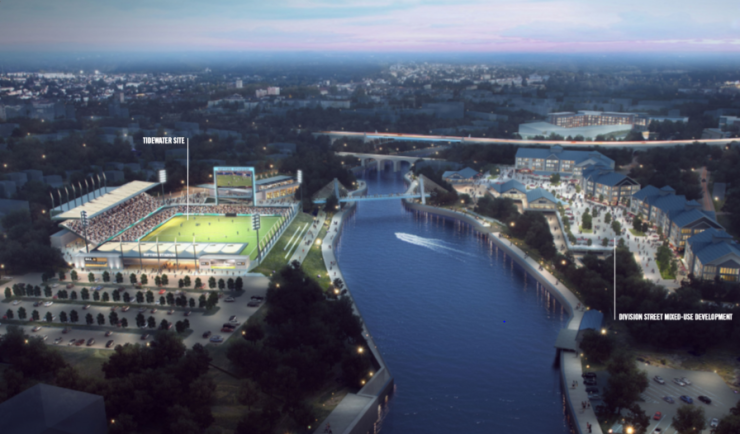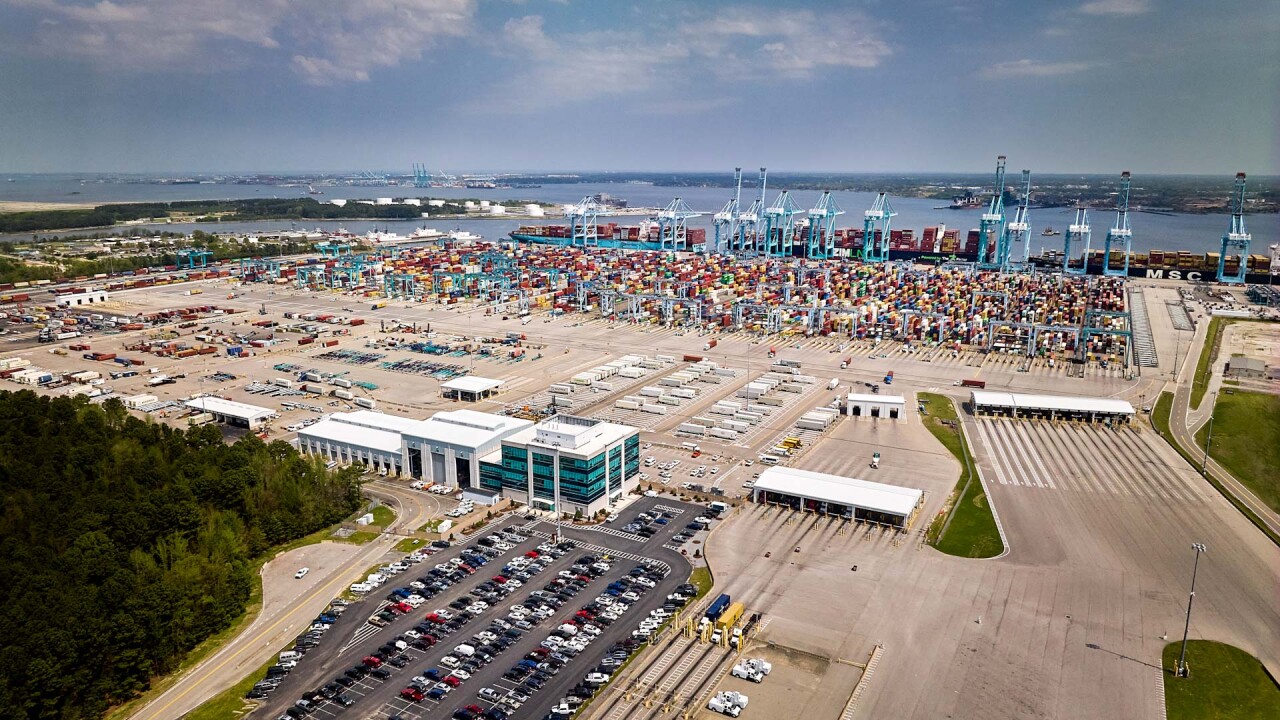Bonds backed by a local tax increment financing program are central to a $400 million economic development proposal that would be anchored by a 7,500-seat soccer stadium in Pawtucket, Rhode Island.
Gov. Gina Raimondo and Mayor Donald Grebien said it surpasses the proposal for a minor-league baseball stadium that fizzled last year amid political gridlock. After playing in Pawtucket since 1973, the Class AAA Pawtucket Red Sox will move to
“Absolutely the city is in better position today, with more revenue over 30 years than what was projected in PawSox deal,” Grebien told reporters on Monday.

In addition to Riptide Stadium, which would house a franchise in the lower-division United Soccer League, the so-called Tidewater Landing project will span both sides of the Seekonk River and include expanded waterfront access through a riverwalk park connecting downtown to a now-underused riverfront, a new pedestrian bridge, and other key infrastructure upgrades.
New York investment firm Fortuitous Partners is also expected to include a new indoor sports complex, market-rate and workforce housing, a 200-room hotel, and commercial office space. Fortuitous is involved with various sports-anchored mixed-use real estate projects and so-called opportunity zones, created under the federal Tax Cuts and Jobs Act of 2017.
The ancillary development would be at the site of the former Apex department store property the city had coveted for the minor league baseball park to replace aging McCoy Stadium. The city or state must still purchase the land.
Fortuitous’ founder and principal, Brown University graduate Brett Johnson, is also co-chairman and shareholder of Phoenix Rising Football Club in the USL Championship Division.
No legislative approval is necessary, although House Speaker Nicholas Mattiello, D-Cranston, and Senate President Dominick Ruggerio, D-North Providence, joined Raimondo at Monday’s announcement to support the project. Ruggerio called Pawtucket “the northern gateway for our state.”
Rhode Island’s General Assembly has already approved a new Pawtucket tax increment financing, or TIF, program that authorizes the state to borrow money for the project and pay back the funds using tax revenue — such as sales taxes and hotel taxes — generated from the new economic activity.
“This project will pay for itself,” said state commerce Secretary Stefan Pryor.
State officials expect to finalize the taxpayer bill within four months. They pegged it the range from $70 million to $90 million overall — or roughly 20% of project costs — with state revenue to account for $60 million to $80 million. Variables include site conditions, parking needs, and other project-specific considerations.
The agreement will feature performance metrics, they added.
The project is focused on the Tidewater and Division Street sites that National Grid and the city own, respectively. The goal is for the USL professional soccer team to play in the new stadium for the 2022 season.
The Pawsox announced the 40-mile move to Worcester having rejected a bonding framework Raimondo signed to try to keep the franchise in its home since 1973. That $83 million deal would have included $44 million of public money.
Objections to the baseball stadium plans included the stinging memory of the
Rhode Island issued a $75 million loan in 2010 to lure Schilling's company to Providence from Maynard, Massachusetts. The company’s demise left Rhode Island stranded with debt that it backed with its moral obligation.
Pawtucket, with a 72,000 population five miles north of capital Providence, has general obligation ratings of A3 and A-plus from Moody’s Investors Service and Fitch Ratings, respectively. S&P Global Ratings rates the city's bonds AA.
The new project does not include the McCoy site, which Grebien’s administration is working on separately.
Worcester has begun selling bonds to finance its $100 million





